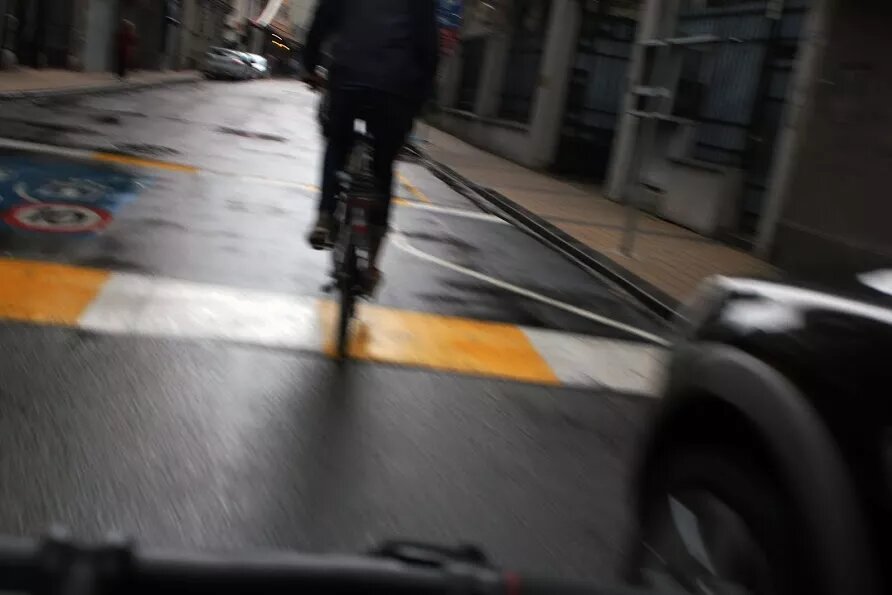
In Serbia, transforming the fossil fuel (brown coal) based energy sector is recognised as a major challenge. In a wider context of sustainable development, ‘greening’ the energy industry has to be considered in the economic and social context of energy poverty. In that sense, as the title of a famous study from over a decade ago states, Serbia is still ‘stuck in the past’: low energy efficiency, high energy intensity, high external costs of energy generation and no policies to address these issues in the long run even those considered to be the ‘low hanging fruits’, such as energy efficiency or transport.
Transport is a segment of global mitigation and adaptation efforts that Heinrich Boll Foundation in Serbia, Montenegro and Kosovo (HBF) has particularly focused on, mostly in Belgrade, the biggest city of the Western Balkans. According to prof. Banister of Oxford University’s Transport Studies Unit, sustainable mobility is an alternative paradigm for reviewing and creating transport policies for carbon-neutral cities where people would (ideally) not need a car. Changing the paradigm has been one of the focuses of HBF’s climate change programme in Belgrade: shifting the focus from discussing (unsustainable) transport to speaking of (sustainable) mobility. It is both a change of paradigm and a change of discourse.
According to the Serbia’s Initial National Communication to UNFCCC and the Draft Summary of the Biannual Update Report (2015) transport-related GHG emissions have been in decline since 1990 due to the overall collapse of the economy. At the same time cars are more than ever considered a necessity even in towns where bicycles used to be the most common mode of transport until couple of decades ago (e.g. in Vojvodina region). Consequently, one of the axioms of current urban planning in Belgrade is the ‘need for more parking spaces’. Official strategic documents envisage the increase of car use that needs to be accommodated. For that reason, although there might be a decrease in overall GHG emissions from transport, the air pollution in Belgrade is regularly above legal limits.
So far the main promoter of the above mentioned paradigm shift is the civil society. Hence, political struggle for more sustainable cities is, at the same time, a demand for more transparent and participatory decision making processes with long term sustainability in mind. In that sense the fundamental issues of consolidating democratic institutions and strengthening the rule of law remain the same whether one speaks of issues such as cycling infrastructure and land development or the access to justice. Recently raised questions about Serbia’s Intended Nationally Determined Contribution (INDC) illustrate the need to engage public in the decision making in order to secure both mutual trust between the Government and civil society organisations (CSOs) and a broad consensus on policies that will lead the country towards a more sustainable development in the context of EU (pre)accession negotiations, keeping in mind future obligations within the EU. The same goes for local political contestations around transport and urban planning.
Mobility-related mitigation and adaptation measures in urban environments can take many forms. A very popular measure in many cities across the world is the introduction of bike sharing systems. Such an idea is promoted in Belgrade by the Initative for Sustainable Urban Mobility’s recent Initial Feasibility Study which elaborates what kind of system would be financially sustainable in a city such as Belgrade. It remains to be seen how the city authorities will respond to such (in the local context) alternative proposals.
Concurrently with these anticipated policy turns and consequential (infra)structural changes, bottom up pressure is and will be necessary in years to come. Actions by citizens in Belgrade and Novi Sad are already bringing results and both policy makers and status quo prone public administration are more and more taking into account the needs of cyclists and pedestrians. The role of CSOs will remain the same: to monitor implementation, propose changes and improvements, as well as promote sustainable mobility modes and educate both the general public and the decision makers.
Finally, in order to be sustainable, mobility policies ought to take into account economic and social aspects such as pricing, aging population, accessibility, inclusion etc. A symbolic example of social aspects of mobility in Belgrade is the informal recycling industry, different activities commonly performed by members of one of the most deprived and discriminated communities in the country, the Roma people. Their activity of recycling secondary raw materials (mainly paper) is a perfect example of green economy and a zero-emissions business model because it is, usually, conducted using cargo-bicycles. Despite all that, policy-wise, and often legally as well, these fellow citizens remain invisible.
Written for www.balkanaction2015.org/.